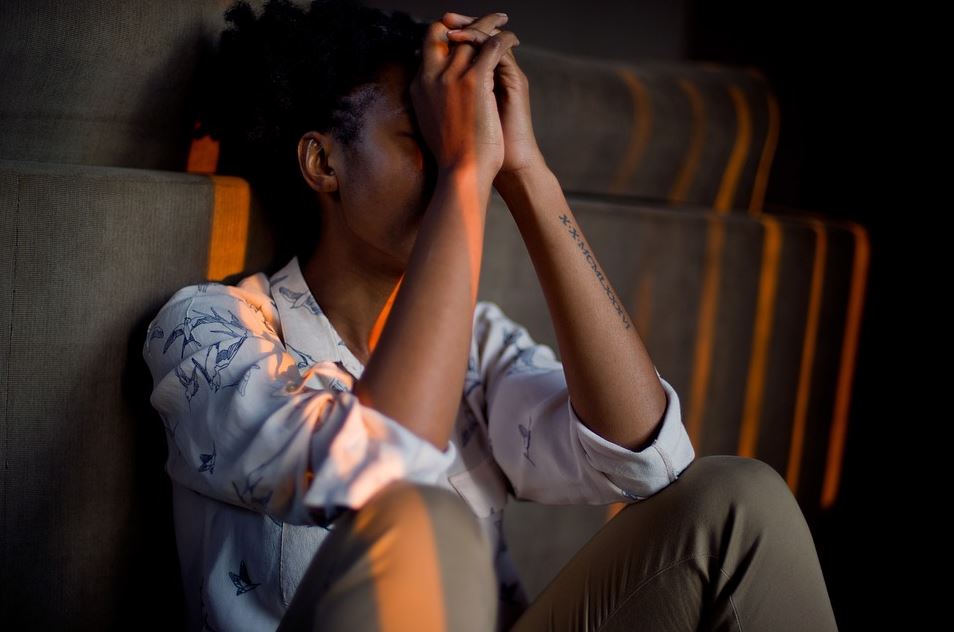It’s normal to occasionally experience anxiety in a stressful or uncertain situation, which typically passes once the event is over. It is a feeling of nervousness about particular events such as having to fly on a plane or go for a job interview.

However, an anxiety disorder is frequently having excessive, persistent, and irrational feelings of fear and worry that don’t easily subside. It can lead to panic attacks that are intensified, uncontrollable moments of perceived terror and anxiousness. Anxiety disorders are difficult to control and affect normal daily functioning.
While a certain level of anxiety helps with awareness and reacting to potential threats, it’s possible for symptoms to worsen and develop into a disorder. Anxiety can become a serious condition and it’s fast becoming one of the most pervasive mental disorders today.
Anxiety disorders are diagnosed as disruptive and distressing and make you feel helpless, trapped, or fearful. There are different types of anxiety disorders that fall in several categories, for example:
- Phobias that make you avoid situations, objects, or people that make you feel helpless, trapped, and fearful. Phobias can trigger panic attacks.
- Generalized anxiety disorder occurs when ordinary events cause an exaggerated feeling of worry and dread.
- Separation anxiety in children who are distraught and unable to cope when separated from a parent.
Why does it occur?
There are several factors that can increase the risk of developing an anxiety disorder and can be associated with genetics, environmental factors, underlying medical conditions, or lifestyle choices, such as:
- Trauma and stress of any kind, whether it’s endured abuse, witnessing a disturbing incident, experiencing a negative event that has long-lasting effects, being in a life-threatening accident, or having a terminal disease.
- It can be hereditary.
- Different personality types can be attributed to some people being more susceptible than others.
- Having an existing mental illness or other medical condition.
- The misuse or withdrawal of alcohol and drugs or certain medications can be a trigger.
Main Symptoms
Symptoms and signs of anxiety can be fleeting or last for longer periods of time if it has developed into a disorder:
- Shaking and sweating
- Accelerated heart rate
- Tightness in the chest and chest pains
- Feeling knots in the stomach
- Exacerbated worrying
- Restlessness and nervousness
- Hyperventilating
- Trouble concentrating
- Lack of appetite
After experiencing these feelings, it can make you feel weak, tired, and depleted of energy, which can result in further health issues.
Consequences
If left untreated, anxiety can pervade every aspect of your life with dire long-term consequences. It can progress into other mental disorders and have a negative effect on your physical health such as developing gastrointestinal problems, cardiovascular disorders, obesity, and insomnia. Extreme fluctuations in your stress hormones and autonomic responses increase heightened systemic inflammation that harms your physiological condition.
Having an anxiety disorder can also lead to drug abuse and addiction as a coping mechanism as well as self-imposed isolation to avoid unpleasant situations regardless of how irrational they may be. And as the symptoms get more severe, loneliness and self-loathing can take hold, which can cause suicidal thoughts and behavior.
Social Isolation and Mental Health Risks
Humans are inherently social. We are biologically and psychologically programmed to survive in social and interactive settings. However, the outbreak of the COVID-19 pandemic has caused most people to experience a level of social isolation they’ve never had before.
Social isolation is perceived differently by people. A teenager having to isolate with her family without seeing friends could be lonely. But an elderly person who lives alone has no interaction with anyone for weeks or months. Either way, social isolation has negative effects mentally and physically.
Loneliness can lead to anxiety and depression, which in turn can lead to cognitive decline and a weakened immune system. Unhealthy lifestyle habits also form because there is less social interaction and accountability. The longer you have to isolate, the higher the risk of mental afflictions and physical disorders. Realchems offers solutions to help preserve your mental health.
Other causes of COVID-19 Anxiety
It’s not just the social aspect of the pandemic that has caused anxiety. There is a lot of uncertainty about the future regarding the economy, employment, and education. Life has been a constant roller-coaster since the first few months of 2020.
These are important issues that most people have had to face and while there is no quick magic solution, there are ways we can strengthen our resolve and ability to cope in changeable times both mentally and physically.
How to Reduce COVID-19-related Anxiety
At a time like this, it’s normal to be fearful and have concerns, but it’s important to regain control over your emotions and actions. There are healthy strategies you can incorporate into your routine that will equip you and your family to better manage feelings of anxiety and help you ride the wave of uncertainty.
Lifestyle
Avoid self-medicating and overindulging in alcohol or drugs. Plan walks with your isolation bubble or spends some time alone outdoors as a way to meditate and exercise. Maintaining a balanced and nutritious diet supplemented with vitamins is crucial to promote well-being and health.
Technology
Use technology to stay connected to friends and family. Schedule weekly video conferences for face-to-face interaction. It is a vital tool that can help you stay in touch with loved ones.
News
Stay informed by sticking to trustworthy news sources and avoid getting caught up in sensationalistic media coverage and misinformation.
Interesting Related Article: “4 Reasons Why You Should Seek Professional Help When Anxiety Attacks“

